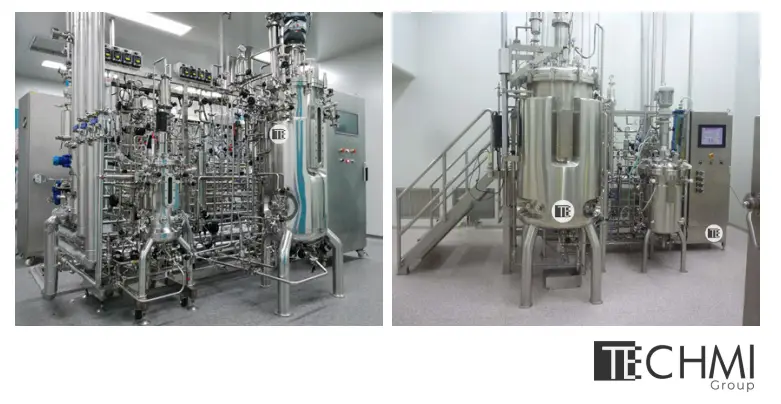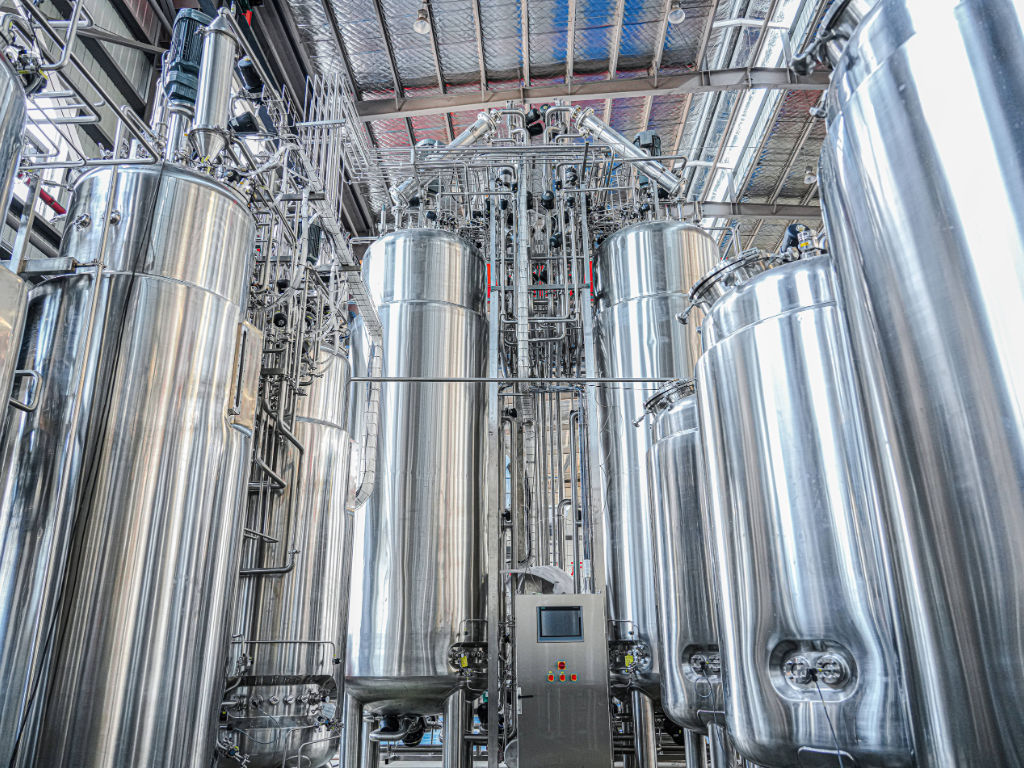Innovations de pointe en matière de bioproduits durables.
L’agriculture moderne se trouve à un carrefour où la durabilité et l’efficacité doivent aller de pair. Dans ce contexte, les produits biologiques, tels que les inoculants et les engrais, sont apparus comme des solutions clés pour améliorer la productivité agricole tout en respectant l’environnement. Ce rapport fournit une vue d’ensemble actualisée des dernières avancées dans la formulation et la fabrication de ces produits, qui sont essentiels pour le développement d’une agriculture plus verte et plus durable.

Comment fonctionnent les nano-inoculants ?
La nanotechnologie a révolutionné la manière dont les inoculants sont apportés aux plantes et au sol. Les nano-inoculants permettent une libération contrôlée des micro-organismes bénéfiques, augmentant ainsi leur survie et leur efficacité. Cette technologie permet aux cultures de bénéficier au maximum des inoculants, en améliorant la nodulation des légumineuses et la disponibilité des nutriments dans le sol.
Édition de gènes : Des engrais microbiens à la pointe de la technologie.
En outre, l’édition de gènes, en particulier CRISPR-Cas9, permet la création de souches microbiennes dotées de capacités accrues de fixation de l’azote, de solubilisation du phosphate et de production de phytohormones. Ces avancées favorisent le développement d’engrais microbiens de nouvelle génération qui pourraient réduire la dépendance à l’égard des engrais chimiques synthétiques.
Microencapsulation : Protection et longévité des produits biologiques.
D’autre part, la microencapsulation de micro-organismes et de nutriments offre une protection significative contre les facteurs environnementaux défavorables. Elle améliore également la stabilité et la durée de conservation des produits biologiques. Des systèmes de libération contrôlée sont en cours de perfectionnement pour garantir que les agents biologiques sont libérés au moment optimal pour l’absorption par les plantes.
Biostimulants naturels : Amélioration de la croissance et de la résistance des plantes.
La recherche sur les biostimulants a progressé dans l’utilisation des algues et des sous-produits agricoles, les transformant en produits de grande valeur pour la croissance et la santé des plantes. Ces biostimulants naturels contiennent un riche mélange d’hormones végétales, de minéraux, de vitamines et d’acides aminés qui favorisent une croissance robuste et aident les plantes à résister aux stress abiotiques.
Technologies de séquençage et bioinformatique : Une vue détaillée du microbiome du sol.
Les nouvelles technologies de séquençage de l’ADN et les outils bioinformatiques permettent de mieux identifier et caractériser les micro-organismes bénéfiques présents dans le sol. Ces connaissances permettent de sélectionner et de concevoir des consortiums microbiens spécifiques en fonction des cultures, des sols et des conditions climatiques, ce qui débouche sur des produits plus personnalisés et plus efficaces.
Le concept de régulation du microbiome du sol a gagné en importance, se concentrant sur la gestion de l’assemblage microbien du sol pour améliorer la santé du sol et la croissance des plantes. Les avancées dans ce domaine permettent de concevoir des traitements spécifiques qui stimulent ou inhibent certains groupes microbiens au profit des cultures.
Fermentation en milieu solide : Efficacité et durabilité dans la production de bioproduits.
La fermentation en milieu solide pour la production d’inoculants et d’engrais biologiques gagne en popularité en raison de son efficacité et de sa durabilité. Cette technique utilise des résidus agricoles comme substrat, ce qui permet de réduire les coûts et l’impact sur l’environnement par rapport aux méthodes traditionnelles de fermentation liquide.
Ces avancées promettent une révolution dans la manière dont les cultures sont nourries et protégées. L’intégration des nanotechnologies, de l’édition de gènes, de la microencapsulation, du développement de biostimulants naturels, de la bio-informatique et de techniques de production plus durables ouvre de nouvelles perspectives pour une agriculture productive et respectueuse de l’environnement. Grâce à l’intégration de ces développements dans les pratiques agricoles, des systèmes alimentaires plus robustes et plus durables se profilent à l’horizon.
Visitez notre site web pour découvrir comment nous travaillons avec nos équipes dans le domaine de l’innovation et de la biotechnologie. Nous disposons d’une grande variété d’équipements de pointe.



